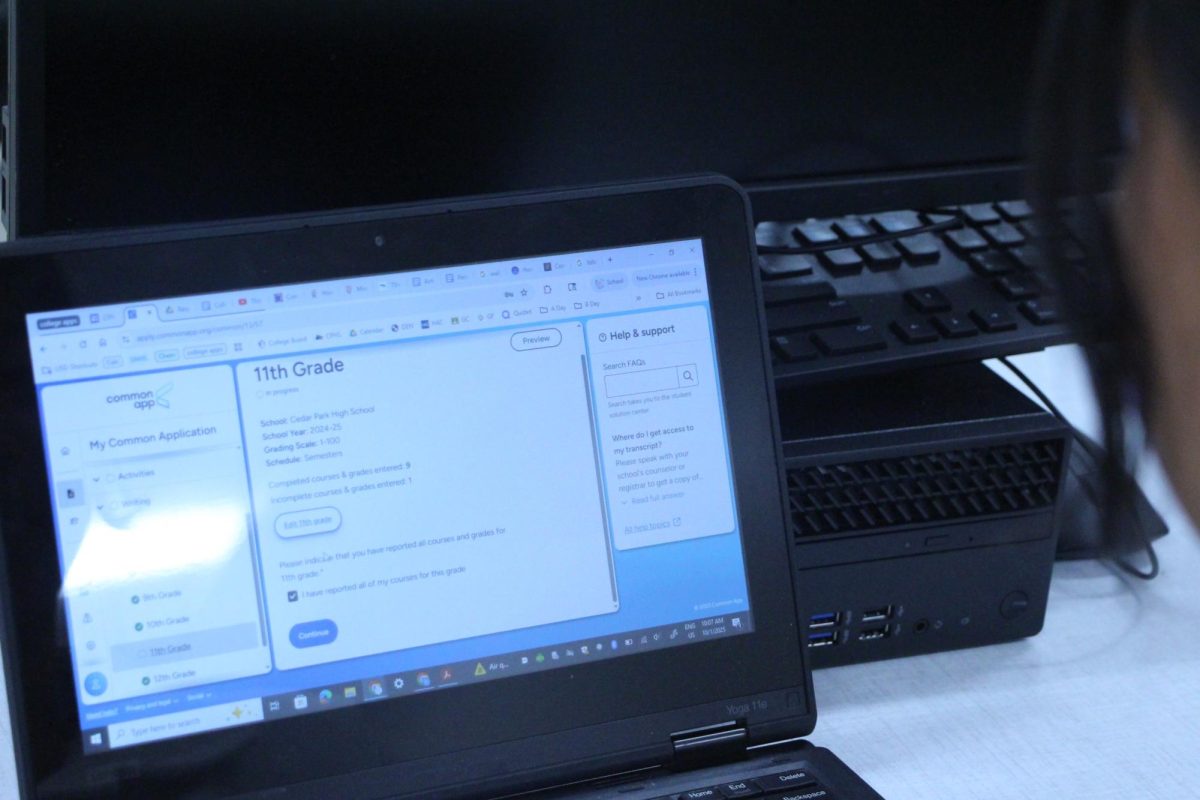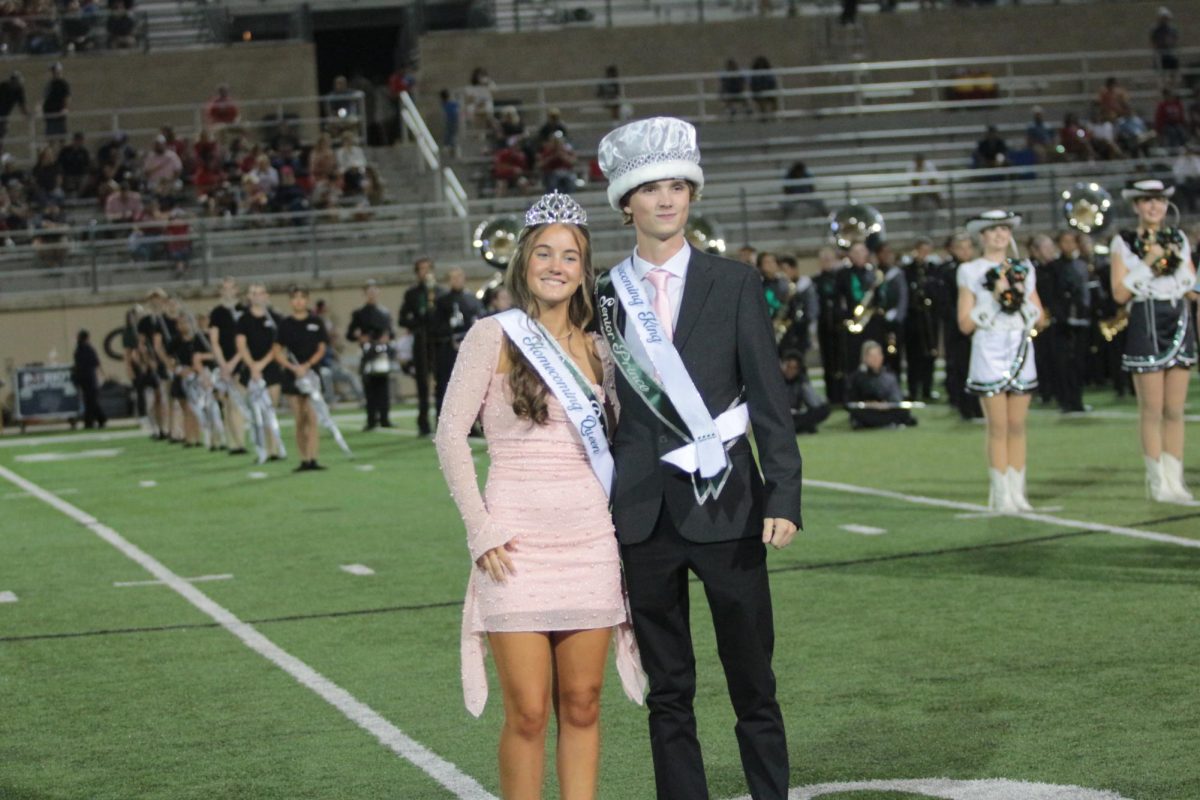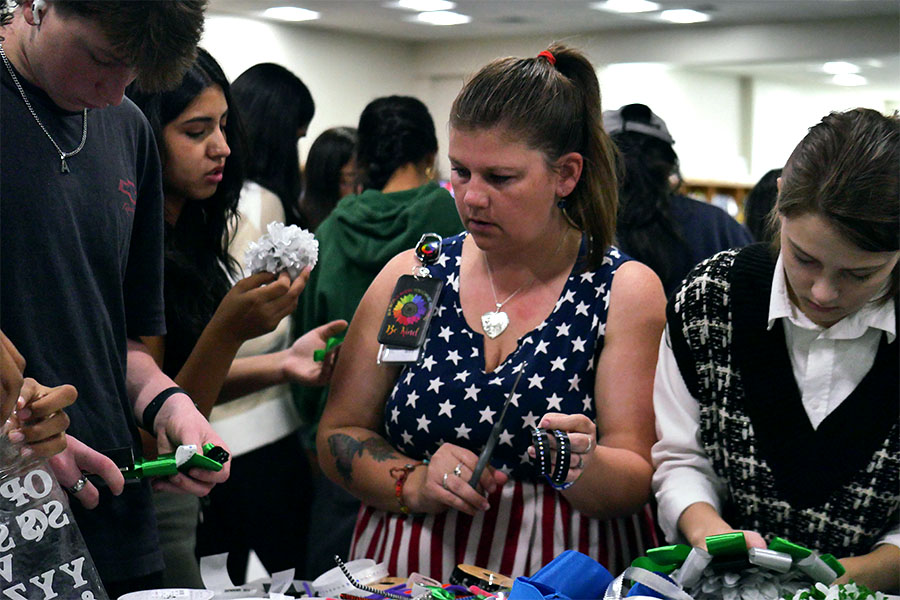When the president makes a speech, people listen if they please. When the president makes a speech directly to school children, the school children should be allowed to listen if they so desire. However, when President Obama gave a live address to the school children of America on September 8, it was not heard by the students in LISD.
The reason stated for silencing the speech could be found in a statement given to teachers and published on LISD’s web site that read, “Due to the logistics of making a webcast available during that time of the school day, we will not be showing this address in LISD classrooms or campuses.” We contacted Dick Ellis, LISD Communications Director, for further elaboration and to offer him an opportunity to be interviewed for this story, but he declined, referring us to the statement posted on the LISD web site. The district directed teachers not to watch the speech live with students.
So why is it that other school districts, less fortunate than us from a technology standpoint, could watch the address? Leander ISD has a highly developed technology platform and didn’t seem to have a problem streaming the Presidential inauguration last year. Other nearby school districts were at least given the option to watch the address — Austin ISD had both an opt-out and an opt-in policy for the students, depending on the decisions of individual teachers to show or not show the speech.
For many schools in the district, it wasn’t necessary to watch the speech in webcast form, as the speech was broadcast over news networks on TV.
In addition, there was an open records request requiring teachers and staff to forward any e-mails sent regarding President Obama’s speech to school children. It is not clear whether the request came from pro-speech or anti-speech advocates.
One possible reason for banning the speech could be the fear of political backlash from conservatives in the district. Those against showing the speech live decried the loss of an educational opportunity. A speech of national renown, such as this address to school children, presented a great learning tool to classes like Government and U.S. History. Almost any speech made by any President will become part of history—this was a chance to see history as it was being made; unfortunately, LISD students were denied the opportunity to see the live rendition. Additionally, English classes could analyze President Obama’s rhetoric and such—another missed educational opportunity.
Presidents have spoken directly to school children about the importance of education in the past, without controversy. Presidents Ronald Reagan and George H. Bush directly addressed students long before this debacle. President Obama’s speech wasn’t even about politics; it was simply an inspiring pep talk for the students of America. It was an encouragement to stay in school, take responsibility for their futures and keep their grades up.
Understandably, some parents did not want their children to see the president’s address, either because of political views or simply because they think class time should be better utilized. And, I suppose, the district was protecting its teachers from having to deal with upset parents. Had the teachers been given the personal choice to show the speech, they would be in the line of fire and not the district as a whole. On the other hand, teachers are professional adults, charged with determining educational importance of material, who make curriculum decisions all the time. The district even ruled out the possibility of having a parent certified opt-in program. Students weren’t allowed to listen to the address even if they obtained parental consent. An opt-in/opt-out program, such as the one Austin ISD offered, possibly could have helped the district avoid some parental backlash and allowed students to see the speech live as well.
It seems like the district is most afraid of angry parents, but banning the speech didn’t protect them by any means. Many parents contacted the district wanting to know why their children couldn’t watch the speech. Having a mandatory requirement, either for or against the speech, was bound to prompt negative reactions. Perhaps LISD could have left the decision up to the students and teachers, at least at the high school level.
More disturbing than the loss of an educational opportunity is the precedent that is being set. The opposition to the address closed ranks and prevented it from being seen in schools. Now the repercussions of this decision must be faced. The forces of censorship will only be emboldened—who knows what they will find objectionable next? This debacle also exposes a dangerous double-standard held in regards to high school students: we are capable enough to face AP classes and college applications, but cannot form our own opinions about a simple speech. This is the generation that will be trusted with the future of this government. If they cannot be trusted to watch a non-political address directed at them and glean their own insights about its contents, then how can we be expected to chart an appropriate course for the future?






![As her hair blows in the wind, senior Brianna Grandow runs the varsity girls 5K at the cross country district meet last Thursday. Grandow finished fourth in the event and led the varsity girls to regionals with a third place placement as a team. “I’m very excited [to go to regionals],” Grandow said. “I’m excited to race in Corpus Christi, and we get to go to the beach, so that’s really awesome.” Photo by Addison Bruce](https://cphswolfpack.com/wp-content/uploads/2025/10/brianna.jpg)


![Broadcast, yearbook and newspaper combined for 66 Interscholastic League Press Conference awards this year. Yearbook won 43, newspaper won 14 and broadcast took home nine. “I think [the ILPC awards] are a great way to give the kids some acknowledgement for all of their hard work,” newspaper and yearbook adviser Paige Hert said. “They typically spend the year covering everyone else’s big moments, so it’s really cool for them to be celebrated so many times and in so many different ways.”](https://cphswolfpack.com/wp-content/uploads/2025/05/edited-ILPC.jpg)





![Sitting with her friend senior Sohpia Struve at last year’s Austin City Limits Festival, senior Ava Zuniga poses for a picture under a pavilion. They are frequent attendees at ACL, an annual music festival at Zilker Park. “I would recommend seeing a bunch of people,” Zuniga said. “This past year, we camped out for Chappell [Roan] for a really long time. I think the whole point of ACL, [which] is a lot of fun, is that you can go see so many different people, even if you don’t know them. So by camping by one person, it really limits yourself from being able to go see a bunch of people.” Photo courtesy of Ava Zuniga](https://cphswolfpack.com/wp-content/uploads/2025/10/EE9E9484-FE6F-4AA0-B5F5-0C177AB32841-1200x857.jpeg)
![Looking down at his racket, junior Hasun Nguyen hits the green tennis ball. Hasun has played tennis since he was 9 years old, and he is on the varsity team. "I feel like it’s not really appreciated in America as much, but [tennis] is a really competitive and mentally challenging sport,” Nguyen said. “I’m really level-headed and can keep my cool during a match, and that helps me play a bit better under pressure.” Photo by Kyra Cox](https://cphswolfpack.com/wp-content/uploads/2025/09/hasun.jpg)

![Bringing her arm over her head and taking a quick breath, junior Lauren Lucas swims the final laps of the 500 freestyle at the regionals swimming competition on date. Lucas broke the school’s 18-year-old record for the 500 freestyle at regionals and again at state with a time of 4:58.63. “I’d had my eye on that 500 record since my freshman year, so I was really excited to see if I could get it at regionals or districts,” Lucas said. “ State is always a really fun experience and medaling for the first time was really great. It was a very very tight race, [so] I was a bit surprised [that I medaled]. [There were] a lot of fast girls at the meet in general, [and] it was like a dogfight back and forth, back and forth.” Photo by Kaydence Wilkinson](https://cphswolfpack.com/wp-content/uploads/2025/03/Kaydence-2.7-23-edit-2.jpg)
![As the support team sits and poses for a photo in the cafeteria with the counseling team they eagerly wait to start their day. "We [all] seem to be a team, I get up every day and there's days where I don't want to go to work today, but I'm thankful that I have a job and I'm blessed to have what I have," Christopherson said. Photo Courtesy of Julie Weltens.](https://cphswolfpack.com/wp-content/uploads/2025/01/AF9E8470-10D7-4C91-BF28-EC8F86BAB66C-1200x852.jpeg)
![Jumping off the ground, senior linebacker Bennett Patton snatches the ball out of the air for an interception at Thursday’s game against Chaparral. Patton had two interceptions in the 56-14 victory, tying the school record for interceptions in a game. “I was just playing the game,” Patton said. “[I’m] going to go into next week, forget about it and stay humble.” Photo by Harper Chapman](https://cphswolfpack.com/wp-content/uploads/2025/09/bennett-interception.jpg)














